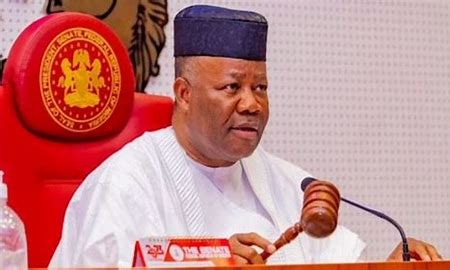
The Senate on Thursday rejected a bill seeking to amend the Foreign Exchange Act of 2004 to introduce provisions for the control, monitoring, and supervision of transactions in the Foreign Exchange Market according to reports from the News Agency of Nigeria (NAN).
The bill, titled “The Foreign Exchange (Control and Monitoring) Bill, 2024 (SB. 353),” was sponsored by Sani Musa (APC-Niger), Chairman of the Senate Committee on Finance, and was first read on Tuesday, February 20.
In his lead debate, Musa described the bill as crucial legislation intended to repeal the Foreign Exchange (Monitoring and Miscellaneous Provisions) Act, Cap. F34, Laws of the Federation of Nigeria, 2004.
He stated that the proposed law would regulate, monitor, and supervise market transactions and related matters. Additionally, it aimed to contribute to the sound development of the national economy by facilitating foreign transactions and maintaining a balance of international payments.
Sen. Musa said, “The Bill seeks to stabilise the value of the currency by ensuring the liberalisation of foreign exchange transactions to maintain an equilibrium of the balance of international payments.”
“It will also stabilise the value of the currency by ensuring liberalisation of foreign exchange transactions and of other foreign transactions by revitalising market functionality. The newly introduced clauses will enable the CBN to determine the basic exchange rate of purchase and sale of foreign exchange,”
However, senators expressed concerns that new legislation to monitor or control the foreign exchange market, beyond the current efforts by the CBN, could be counterproductive.
Notable senators who voiced serious reservations about the proposed law included Solomon Adeola (Chairman of the Committee on Appropriation), Tokunbo Abiru (Chairman of the Committee on Banking, Insurance, and Other Financial Institutions), and Aliyu Wadada (Chairman of the Senate Public Accounts Committee).
Senator Ibrahim Dankwambo (APC-Gombe), for instance, argued that passing such a law would confuse Nigerians. He noted that any further regulation of the foreign exchange market should originate from the executive branch to avoid creating a crisis in the sector.
Senator Adams Oshiomhole (APC-Edo) pointed out that the senators who had spoken had meticulously summarized and amplified the contradictions and negative implications of passing the law.
Oshiomhole believed the bill should not proceed further, as it would effectively take over the CBN’s monetary policy regulations.
He suggested that if the executive branch wished, they could introduce a bill to further strengthen the CBN’s regulatory powers, emphasizing that such matters were not the Senate’s responsibility.
The President of the Senate, Godswill Akpabio, urged Senator Musa to withdraw the proposed law for further consultations, but the senator declined.
Sen. Akpabio then called for a voice vote to decide its approval or rejection for a second reading, and the majority of lawmakers voted against it.
The Federal Inland Revenue Service (FIRS) has begun its recruitment exercise for experienced professionals to…
Primate Elijah Ayodele Unveils 94-Page Prophecy for 2025, Makes Striking Predictions About Nigeria’s Political and…
The Senior Special Assistant to President Bola Tinubu on Community Engagement (North Central), Abiodun Essiet,…
The Minister of Information and National Orientation, Mohammed Idris, has warned politicians against linking stampedes…
Tobi Adegboyega, founder of the Salvation Proclaimers Anointed Church (SPAC Nation), has stated that he…
The Independent Petroleum Marketers Association of Nigeria has said that petrol is going to sell…